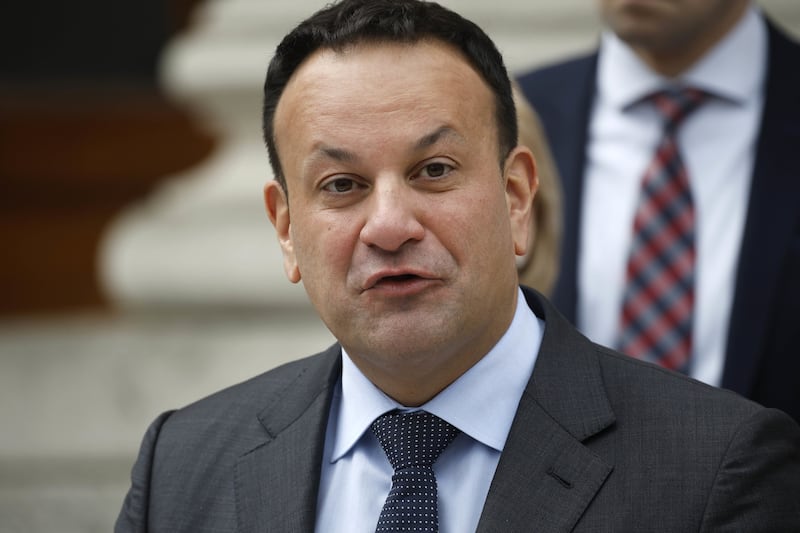Simon Harris has already stated that Irish unity isn’t one of his priorities and his speech after being nominated taoiseach appeared to confirm this, while also suggesting he won’t even pay lip service to the aspirations of northern nationalists.
Fine Gael – in its formative years known as ‘the United Ireland Party’ – was always traditionally less likely to agitate for a constitutional change. At best, its representatives were quietly sympathetic to the goal of a 32-county republic and at worst stringently partitionist.
Leo Varadkar was different, ostensibly at least.

Brexit created a new dynamic within nationalism, while also exposing the selfish interest of English Tories, who seemingly showed more disdain for the EU than loyalty to what they’d likely term ‘Ulster’. The former taoiseach made it clear that he wanted to see a united Ireland in his lifetime, though some may question what substantive efforts he made to further that aim.
Mr Harris, it would appear, doesn’t even care about talking the talk, never mind walking the walk.
It’s early days but his speech, despite referencing how “Our political history has been defined by our quest for freedom”, made not even a passing reference to an issue that some regard as a ‘constitutional imperative’.
He spoke of how “We as a people, we as a country, have over the last 100 years worked tirelessly together to create our own future”.
“Collectively, this country can and should be proud of the progress it has made,” the taoiseach said, yet it seemed he was speaking about 26 counties only. The north only got a name-check in relation to this week’s meeting with the first and deputy first ministers.
The Fine Gael leader pledged to “guard and honour my role as protector and guarantor of the Good Friday Agreement” but gave no indication of how he would help progress the aspiration for a united Ireland. While his predecessor insisted “no (Dublin) government will ever again leave north behind”, the newly-appointed taoiseach’s speech suggested he’s already abandoned his compatriots.
Fianna Fáil and Fine Gael are, with some justification, alive to unionist sensitivities but that shouldn’t mean being frightened to speak about the possibility of a united Ireland. Note how the British government did little to acknowledge nationalist concerns in its recent gung-ho Safeguarding the Union command paper.
Mr Harris has many ‘domestic’ problems to address but being tone deaf to northern nationalism and consistently side-stepping the constitutional question will only foster resentment north of the border, which may well prove contagious in the Republic.









